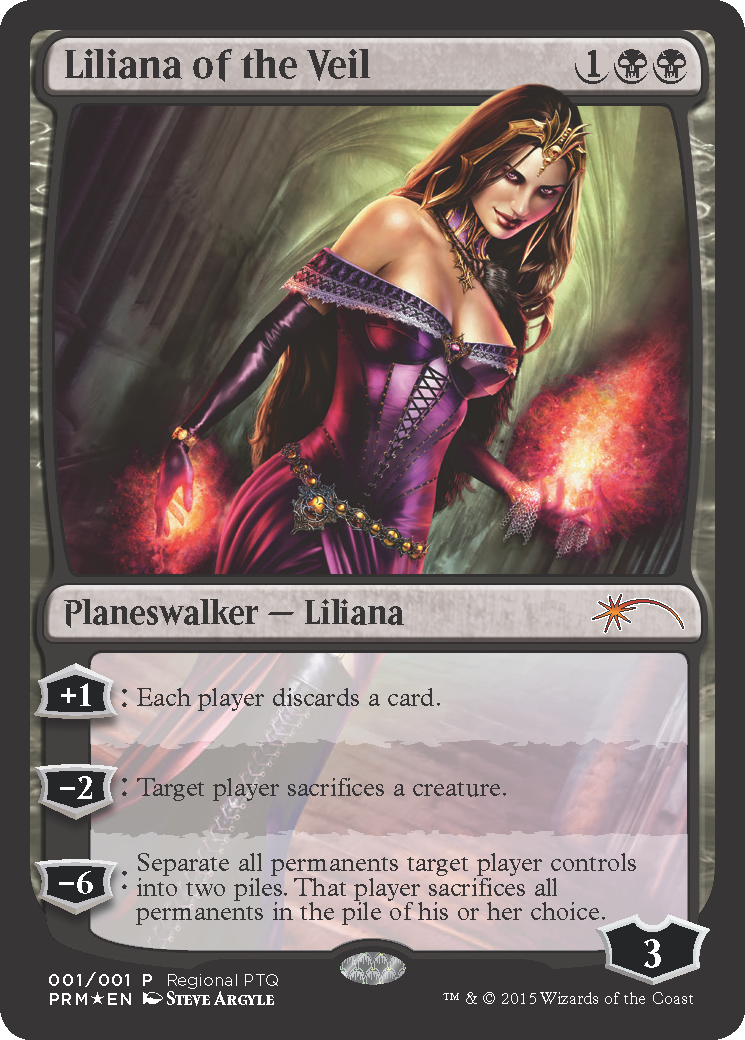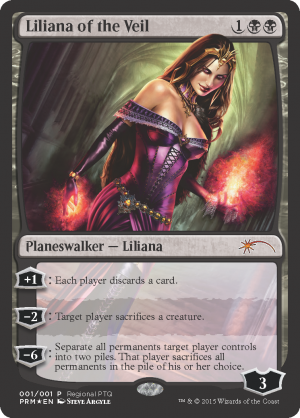Are you a Quiet Speculation member?
If not, now is a perfect time to join up! Our powerful tools, breaking-news analysis, and exclusive Discord channel will make sure you stay up to date and ahead of the curve.
This is cross-posted in a partnership with www.empeopled.com.
I had hoped to never have to address this, but with it being in the headlines so much over the past few months I decided to dive in on a subject I feel strongly about.
Counterfeits in Magic.
I've seen a ton of people argue for the existence of "proxies," specifically the extremely high-quality ones coming out of China over the past year or two. While most people won't speak up about them in public, there are plenty of people who are defending these cards for a plethora of reasons. "Legacy is too expensive, we need reprints!" is a common one, as is "I just want these for my Cube and it's not fair I should have to spend hundreds of dollars for that! It's not even for tournaments!"
You can read the full article here.






I see and understand your reasons for taking a public stance and condemning counterfeits…and I also see the rational of the other viewpoint of ‘why not’ under the principle of ‘casual’ use (and the danger that could imply too)…….
(this next statement goes against the entire grain of finance)…..But within this same breath of this article I believe the point and position to WOTC should be to abolish the ‘reserved list’ (its had its day for the preservation of MTG, but it may be its undoing too!?).
That’s a very different discussion. There are many reasons in favor of abolishing the reserved list and just as many against it. I look at Magic from 3 perspectives: the player, the collector and the trader.
As a player I’d be happy to see it abolished, I don’t want to win because I have cards others don’t. As a collector I don’t care: I’ll want the originals anyway and WOTC never reprints in a form that cannot be distinguished from the originals.
As the trader I have the biggest concern with the abolishment, as right now the reserved list is like a safe haven of cards to trade towards. I’m fairly risk averse and having cards to buy or trade for that are safe from reprints is very comforting, it is in fact where I make my biggest moves. In addition abolishing the reserved list after such a long time will shake customer confidence, I believe prices will drop hard if this comes to pass. I also have lots of value in reserved cards so it would hurt financially. I would understand it getting abolished, but as a trader I’m not a fan at all.
Regardless, counterfeits are not a solution though.
Let’s keep further discussion on counterfeits, there are several reserved list topics on the forum to cover that.
A noble, but misguided effort here Corbin. Chinese moxen, Juzam, and ABU duals (all of which are still pretty easy to spot) have something close to 0% negative effect on either the FLGS’s or Hasbro’s sales of KTK or FR sealed product or Standard playable singles (Standard is the lifeblood of the game really). Hasbro has been dealing with Chinese knockoffs for ages and this is no different. Well, actually it is somewhat different since it’s not like these are fakes of current product, but rather OOP stuff, none of which are even playable in Standard.
They’ve made a modicum of effort by including the “new foil thingy” now on their recent Rares & Mythics, but really, their intent here is to protect the legitimacy of recent product. As long as they keep trying to make their products difficult to counterfeit, things should be fine. The sky is not falling.
A better focus for your diatribe should be how to spot fakes and protect people from getting hoodwinked in a trade with an unscrupulous (or unwitting) party. That’s the real cost of the Chinese counterfeits. I realize that this has been done already (and recently in a very fine series of articles on QS), but it really needs to be the focus. Stay on top of the fakes, learn how to spot them, know what is currently being counterfeited (shine a light on them), buy a loupe, etc.
The hyperbole about the Fall of the House of Garfield goes way too far. Would you care to step up and defend Dear Hasbro for its MSRP on an upcoming box of MM2 ($10 a pack, a mere 150% increase over FR)? And really, since Hasbro is a publicly traded company, if I were a stock owner, I’d be wondering if isn’t it about time that they start looking at options of working WITH these printers (if they are in fact that good)? I wonder how much could be save in their production costs by printing in China rather than Carta Mundi. Scores of other gaming product are printed there, and though I don’t have it close at hand, I suspect D&D 5E, is being printed there (another fine example of WotC price gouging). I’d wager that this has already been discussed by the suits at Hasbro. I’d be seriously worried if I owned stock in Carta Mundi (not sure if it’s a public or private concern) because eventually, that’s very likely to happen.
Then explain the fake Khan’s Polluted Delta a dealer showed me at a recent show?
There’s markets for both and while fake power might seem relatively pain free just putting cards in players hands, it’s funding the efforts to make more widely distributable mass markets of cards. There’s a reason counterfeiters would rather fake 10 and 20 dollar bills than $100 or $1000.
And no, you don’t want to work with the Chinese printers, you’d be giving them the tools to make perfect copies at this point. At least at this point there are some trade secrets going on to keep the divide.
I do agree though that most of this article is misguided and full of malformed arguments though in an effort to create some pretty sensational journalism.
So both of you missed the point where I very clearly stated that we’re a long way from any of the dire consequences I mentioned? The reason I went into it at all is because it’s the logical end of the “I just want cards to be cheap” argument people make in response to counterfeits. As you said, it costs pennies to make a counterfeit, and there are tons of $10 counterfeits out there.
We’re more than just far away. The consequences for dealer’s bottom lines are probably not going to happen as long as there is some functioning legal system that Wizards can use to stop large-scale counterfeiters.
I think card prices are unsustainability high already, with much of the value being made up of people’s expectation that they can unload the card for similar value down the road, and even then I don’t think fakes have the capacity to wreck the havoc you’re showing.
Like I said below, though, they totally do have the ability to foster a hostile, dishonest, and frustrating environment between players.
Corbin’s article isn’t wrong — what he described could indeed happen, in theory — but I think he’s over-estimating the impact that what a bunch of Magic players in the U.S. think is going to really cause it to happen.
There is already a huge and hungry market for counterfeit cards, and no appeal to the masses is going to stop that. People like cheap stuff. Yet, Corbin and his buddies are still in business. Why? Because Wizards is able to use legal mechanisms to clamp down when piracy emerges and keep the production to a minimum. Small print runs of a few hundred cards from some temporary pirate operation are not an existential threat to Wizards. That’s where the enforcement happens and that’s where the collectible aspect of the game is preserved.
Changing topics slightly, I think Corbin overlooked one of the most basic problems that a player might have about counterfeits – simple dishonesty. I have no trouble at all sitting down against someone running proxies. I just enjoy the game. And, by all means, make them pretty! I’ve seen lots of full-art proxies on transparencies or printed on a card that look better than the originals! But, whatever you do, make it clear they ARE proxies. The moment you try to pass off a card as the real deal when it’s not, you’re lying. And, if your card eventually gets traded or sold and passed along into the card pool at large, you’ve just introduced a huge lie that undermines people’s trust in each other.
While counterfeits are very unlikely to kill Magic, they ARE likely to change the social dynamic of trading and purchasing cards. People already whip out out the jeweler’s loupe when looking at power, and if people inject more counterfeits into the system, we will see that kind of thing happening for Jace and duals, too.
The biggest casualty of counterfeiting is not Wizards. It’s simple trust between players.
While you’re right in the sense that you can’t assume those people would’ve spent the money required to obtain the same real cards or something of equal value, you also can’t assume they wouldn’t have spent any money if fakes had been unavailable. There is certainly a non-zero impact of fakes being available, though how large this impact is could certainly be argued.
It seems plausible that people given the choice between $10 fake Duals and $10 real Fetches would perhaps choose to buy the Duals, but that they would get the Fetches if no fake Duals were available. Similarly, there has been fake sealed product (there’s an article on Wizards’ site on it): it seems plausible that people would want to draft in the cheapest way possible, but that with no fakes available they would still choose to play with the real product.
Ultimately, Wizards produces Magic because they can make money on it. When money that would’ve otherwise been spent on the latest set goes towards purchasing fake cards Wizards makes less. How much less is certainly up for debate, but, there might possibly be a point where the impact would become big enough to influence Wizards’ investments in Magic design. I agree that Corbin’s view might be a little too pessimistic, but not more so than that yours seems too optimistic about how small the effect would be.
It has happened before, but Corbin’s link doesn’t really say this. The link is a summary of some results and recommendations but does not actually describe the facts behind them, as far as I can tell.
That is, the linked memo does not explain how “Company A made widgets and had a profit if X, then Company B ripped them off, and then Company A’s profits went down to X-Y until Company B stopped” or something like that. The link is more of a talking point memo for the manufacturing industry.
Fakes are bad because they’re dishonest. Why does it need to be more complicated than that? Don’t tacitly lie to your opponent, what’s wrong with you?